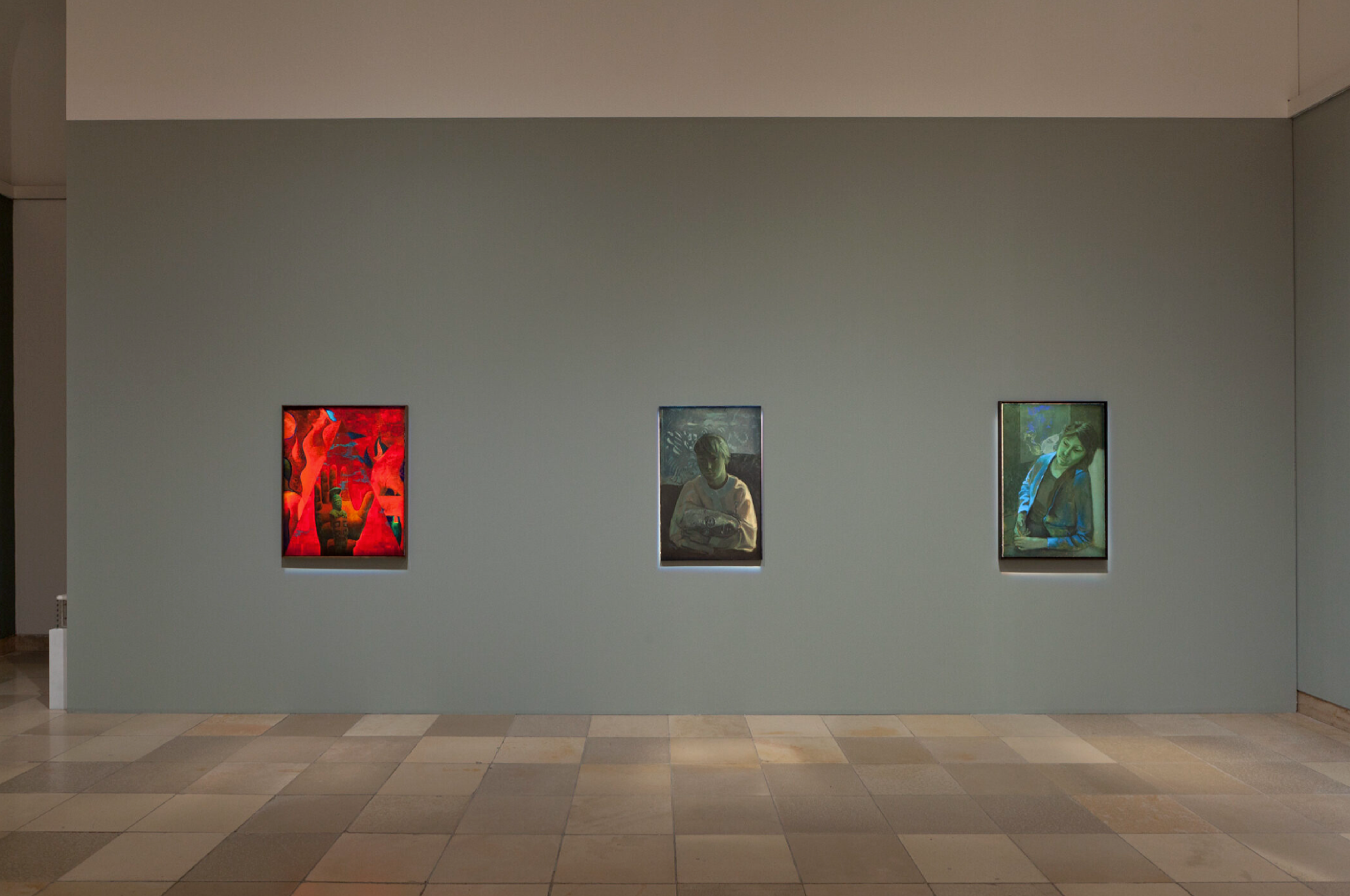Haus der Kunst, Munich
October 24, 2024–January 11, 2015
Zephir is characterized by an unusual exhibition architecture and installation: Winding, narrow spaces open up chapel-like niches, thereby compelling viewers to move up close to the paintings; tinted and specially treated walls (using the marmorino technique) and the spot lighting of the paintings, so they appear to shine from inside out, deepen the intensity and intimacy of the viewing experience. The paintings never provide explanations; Victor Man's mysterious game of hints and suggestions instead leaves the viewer with the feeling that a reversal of all meanings is always possible.
Only gradually does the eye find its bearings and the images' contours emerge from the black, gray and green tones of the small-format paintings of Victor Man. This gradual process of recognition transforms the images into a threshold, a place of transition into another, inner, reality. The space that opens up under cover of darkness within Victor Man's works leads viewers into a mysterious world that merges the mundane and fantastic, myth and fetish, individual experience and art-historical references, the male and the female, man and beast.
This magical image cosmos includes portraits and still lifes as well as beautiful, occult-like and even erotic subjects. The paintings always possess a timeless quality, which is intensified by their mysterious charm. A recurring motif is decapitation: A seated figure, whose head is cut off by the painting's format, holds a head on its knees. Whether the figure is male or female remains unclear. The motif evokes images of Judith and Holofernes, or Salome; the gender ambiguity, however, reveals influences from Surrealism.
The title of the exhibition, Zephir, drives the game of deception between disguise and rewriting further. It does not, as one might initially assume, refer to the wind deity of Greek mythology, who embodies the mild west wind and therefore the spring; the title quotes from a short story by the radical, underground Romanian writer Alexandru Monciu-Sudinski about a malodorous group of whales that haunts a city in a nightmarish scenario. In addition to providing a survey of his work, Zephir includes new paintings and works with neon.
Learn more at Haus der Kunst.

